#Irma Sztáray
Text


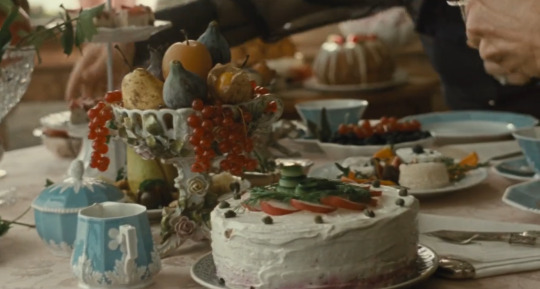

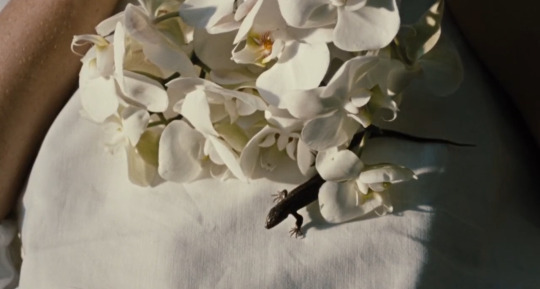

SISI & ICH (2023), dir. Frauke Finsterwalder
#sisi & ich (2023)#sisi & i (2023)#film#screencaps#frauke finsterwalder#sandra hüller#susanne wolff#irma sztáray#elisabeth of austria#kaiserin elisabeth von österreich#period drama#costume drama#cinema#food#idk y'all the soundtrack to this was pretty fire at times i didn't mind it being anachronistic#idk if i should tag this as lgbtq+ bc obviously some characters are but anyway#german cinema#sisi und ich#sisi and i
65 notes
·
View notes
Text
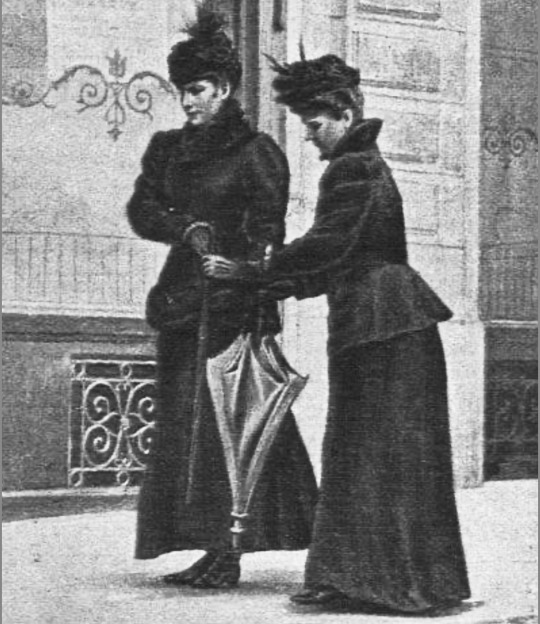
On this day; September 10th 1898, Empress Elisabeth of Austria was assassinated by Italian anarchist Luigi Lucheni in Geneva Switzerland.
On September 10th at 1:35 pm the Empress and Countess Irma Sztaray, her lady in waiting leave the hotel. All the other staff in service of Elisabeth has already left Geneva by train, and stubborn as she is, Elisabeth refused to take bodyguards with her.
[Anarchist Luigi Lucheni] approached the ladies when they walk by and acts as if he stumbles and falls against Elisabeth, stabbing her with a sharpened needle file. Elisabeths falls down, but is helped up again by a coach driver and she and the countess continue to walk to the gangway and board the ship. Elisabeth even talks to the countess, saying that Luigi perhaps tried to steal her watch. She nor any of the bystanders, realize that she is stabbed. Luigi did not miss, his file punctured the body of the empress for 8.5 cm, broke the fourth rib, pierced the lung and penetrated the heart fully. The fact that Elisabeth could get up and walk on is first of all due to the good shape Elisabeth is in.
Empress Elisabeth faints for the first time when on board of the ship. She comes to again, probably because the new blood flow that reaches her brain because of her horizontal position as she is now laying down. She asks the countess what has happened, still no [idea] of her situation. Only after opening of the corset by the countess, causing the blood reserve to spread over the rest of the body, the empress faints for the second and last time.
Countess Sztaray than sees the small blood stain on Sisi’s breast and raises the alarm. The captain of the boat, Captain Roux, is made aware of the identity of the fainted lady and immediatley turns the boat around towards the landing stage in front of the Hotel Beau-Rivage. A stretcher is improvised from sails and peddles and six boatmen carry the empress back to her hotel room.
To check if the Empress is still alive Dr. Mayer makes a small incision in Sissi's arm, but there is no blood flow, and the Empress is pronounced dead at 2:20, September 10th, 1898. The priest that arrived together with the doctors is too late to grant her absolution.
Source: (x)
#Sorry! I couldn’t find a primary source!#empress elisabeth of austria#elisabeth of austria#1898#on this day#september 10#countess Irma Sztáray#Irma Sztáray#luigi lucheni#assasination#empress sisi#Empress Elisabeth of Austria death
27 notes
·
View notes
Text
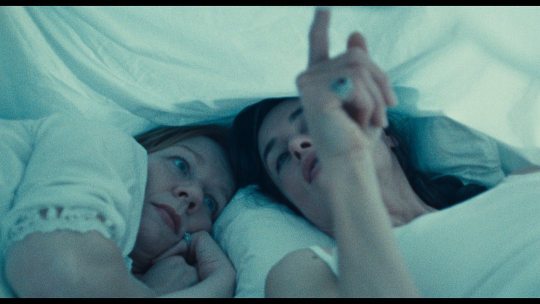
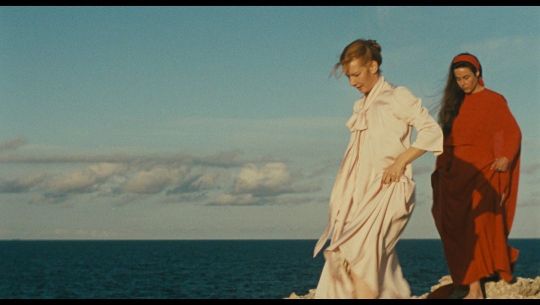
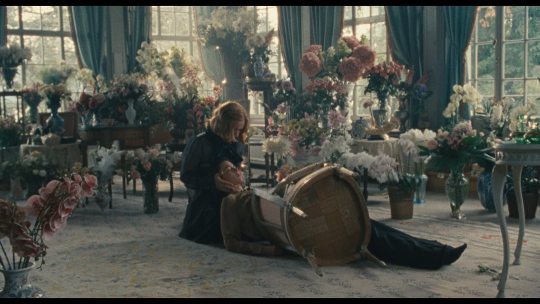

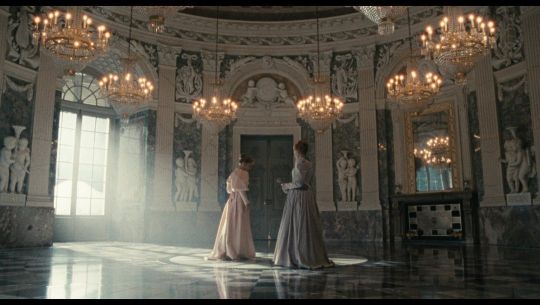
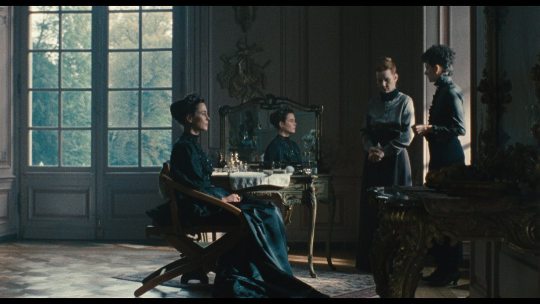
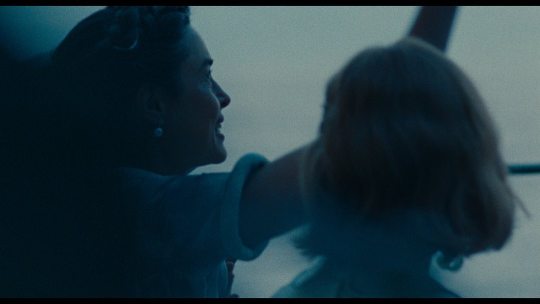
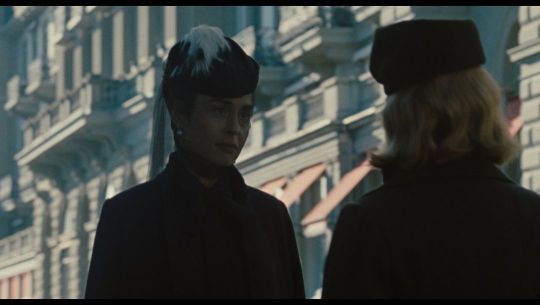
Susanne Wolff and Sandra Hüller as Empress Elisabeth and Countess Irma Sztáray in Sisi & Ich (2023).
#Sisi und ich#Sisi and I#costume drama#historical drama#period drama#Susanne Wolff#Sandra Hüller#elisabeth in bavaria#elisabeth of austria hungary#elisabeth of austria#irma sztáray#german movie
57 notes
·
View notes
Text


Archduchess Marie Valerie's journal entry on the death of her mother Empress Elisabeth of Austria, in 1898 (written on 21 September):
10 September. In the evening at 7.30 o'clock I returned with Maria from a tour of our poor… souper… then went with the three grown-ups to the chapel for evening prayer. Maria came with me, I did not pay much attention to her, did not notice her disturbed expression. I was no more devout than usual… Coming out into the corridor, while the children ran into their room, Maria asked me to come into my writing room, she had something to tell me. I was still thinking only of a small house cross, but when I looked at her, my heart stood still.
“The Archduke?” “No — Her Majesty.”
I don't know whether I asked further questions or whether I immediately said the word “dead”? whether she told me right there in the corridor or already in the room: “Murdered by an Italian anarchist — in the hotel in Geneva.” I don't know. My hand still trembles when I think back to that hour…
Remorse for having returned her great love so badly, and above all… more and more the unspeakable pity for him, the poor, old, sorrowful and grief-stricken father, and the probably also futile question of whether it was not too much for a poor human heart? We were on our knees, Maria and I — in the room and in the chapel. Then I sent a telegram to Franz [Archduke of Austria, Valerie's husband]. And to Papa [Emperor Franz Josef I], “I'll come to you tomorrow morning at half past six.” He himself had telegraphed to Maria that she should “teach me in a good way”.
I went in to see the children. Ella [Elisabeth, Valerie's eldest child] was not quite in bed yet … When I kissed and shook her, hardly knowing what I was doing, telling her softly: “She knows, that dear Grandmama has died,” she began to cry softly, as if she understood. God bless the good child! The boys were already in bed. Hedwig [Valerie's second daughter] was already asleep.
From one room to the other and with Maria out into the quiet starry night. — I lay down too, but sleep was out of the question. At half past one we drove away, Maria and I … arrived in Penzing at half past six in the morning. How the morning dawned over the Vienna Woods, which she loved so much, and how unspeakable fear shook me before seeing Papa again, those are hours that one is amazed to have survived.
Papa stood at the foot of the big staircase at Schönbrunn and we fell into each other's arms. That was the first time he was able to cry, he told me later. But he was still stunned then, and soon afterwards he was calm again, as he had been after Rudolf's death. We went to Sunday mass together, and then I was allowed to spend that first day with him almost without interruption, sitting next to his desk while he worked as usual, reading with him the more detailed news coming from Geneva, helping him to receive the condolence visits of the family members… Prime Minister Thun, who cried like a child — a good feeling that Papa has such servants around him. The unfortunate person who had to bring Papa the first message from Vienna to Schönbrunn was Adjutant General Count Paar with the still undetermined telegram from Irma Sztáray [Empress Elisabeth's lady-in-waiting]; “Her Majesty the Empress seriously wounded”, which was very soon followed by the second: “Her Majesty the Empress just died at 2 o'clock in the Hotel Beaurivage.”
Papa seems to have immediately thought of an assassination, although he repeatedly said: “How can one assassinate a woman who has never harmed anyone?” Papa's intention to leave for Geneva immediately was thwarted by the second telegram.
(Translation by DeepL, keep in mind that in a machine translation a lot of nuances may/did got lost)
#i can't find who maria is - but probably someone from valerie's household#archduchess marie valerie of austria#empress elisabeth of austria#franz josef i of austria#elisabeth franziska of austria countess of waldburg-zeil-hohenems#on this day in history
124 notes
·
View notes
Text


“Sissi & Moi” biopic de Frauke Finsterwalder - sur les dernières années de l'Impératrice Elisabeth d'Autriche dite “Sissi” (1854-1898) du point de vue de sa dame d'honneur Irma Sztáray (1863-1940) - avec Sandra Hüller, Susanne Wolff, Markus Schleinzer, Georg Friedrich, Tom Rhys Harries, Anthony Calf, Sophie Hutter et Maresi Riegner, novembre 2023.
#films#Biopic#hommage#spirit#Sissi#FrançoisJosephI#Sztáray#Spencer#Smythe#Victoria#Finsterwalder#Huller#Wolff#Schleinzer#RhysHarries#Calf#Hutter#Riegner#Friedrich
3 notes
·
View notes
Text
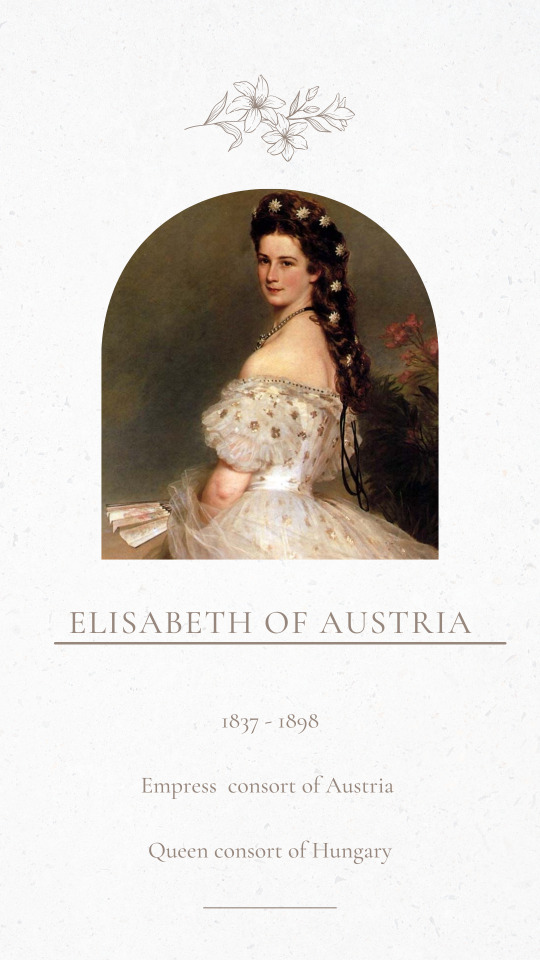
Elisabeth was born 24 December 1837 into the royal house of Wittlesbach. She enjoyed a relaxed childhood where she would often go out riding or hunting.
In 1854 she married her first cousin emperor Franz Joseph I of Austria. The couple had four children Sophia, who died at the age of two, Gisela, Rudolf and Marie Valerie. Elisabeth’s health would often suffer while she was in Austria and she would often travel to Hungary.
In 1889 her only son Rudolf committed murder-suicide with his mistress Mary Vetsera. She never fully recovered from the loss of her son and wore black from then on. After this she rarely returned to court and traveled widely.
Throughout her whole life she had an obsession with her looks and staying youthful and beautiful. She had a strict beauty and workout regime that she stuck to for her whole life.
In September 1898 she was traveling in Geneva when she on 10 September was killed by Luigi Lucheni. He wanted to kill the Duke of Orleans but he had already left. Instead he went for Elisabeth. He walked up to the empress and her lady in waiting, Countess Irma Sztáray de Sztára et Nagymihály, and pretended to stumble. He pushed a sharpened needle file into her body. After being stabbed Elisabeth collapsed and died on a boat a while later.
#historical biogrophy#historical#history#historical edit#history edit#empress elisabeth#elisabeth of austria#sisi#sissi#austrian history#habsburg#empress#empress consort#queen#queen consort#european history#Royal#royal history
121 notes
·
View notes
Text
On this day...
....10 September 1898 Empress Elisabeth (Sissi) of Austria was assassinated in Switzerland by the anarchist Luigi Lucheni.
When Elisabeth was sixty years old, she followed an invitation from the Rothschild family to Geneva.
Together with her lady-in-waiting, the Hungarian Countess Irma Sztáray, she walked the short distance between the hotel and the pier without her entourage, despite warnings of possible assassination attempts.
Luigi Lucheni, a poor man full of rage for the upper nobility, ran towards them as they walked by on the promenade and stabbed Elisabeth directly into her heart with a self-made weapon composed of a small sharp file.
But neither the empress nor her lady-in-waiting realised what really happened. Thinking of a robbery attempt, they went on boarding the ship.
A few minutes later, Elisabeth lost consciousness and died. (http://www.europeana-newspapers.eu/)
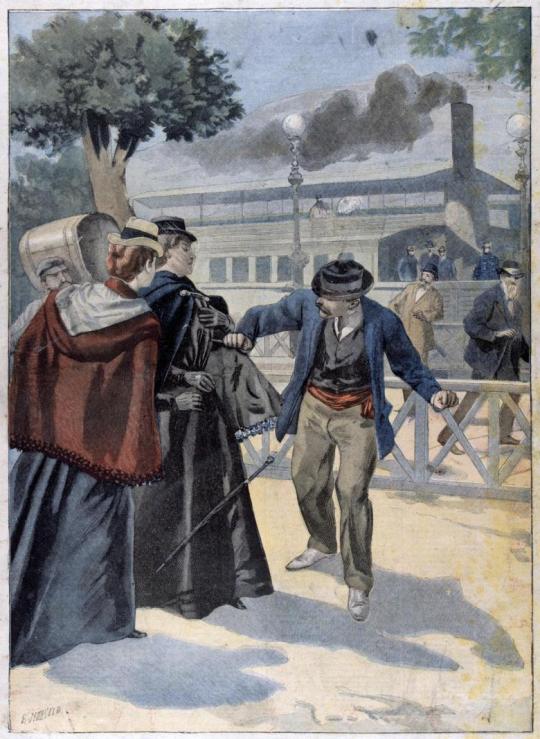
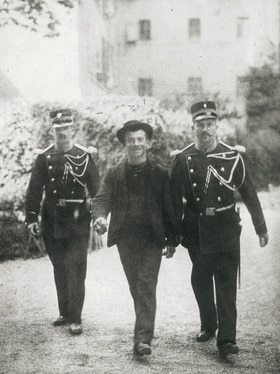
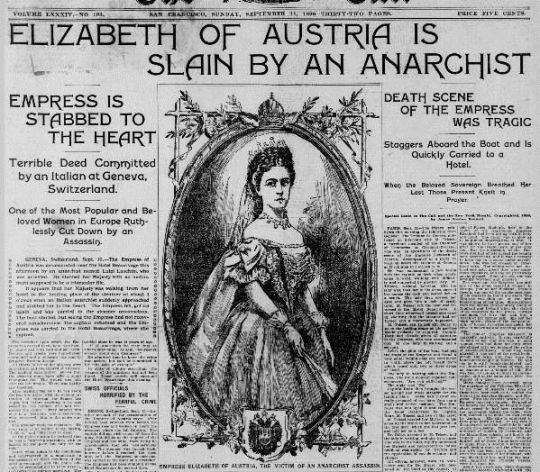
66 notes
·
View notes
Photo
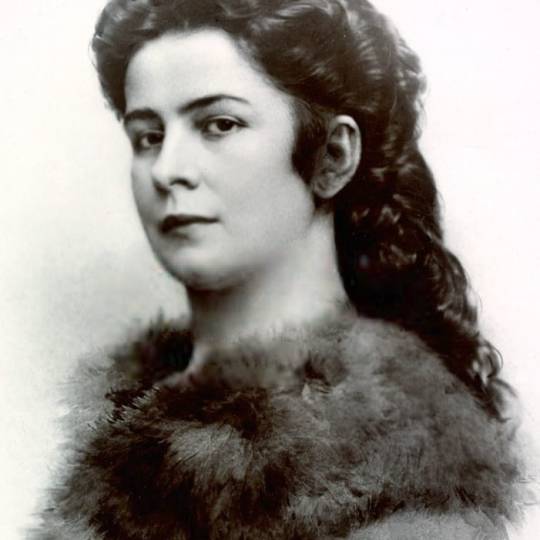
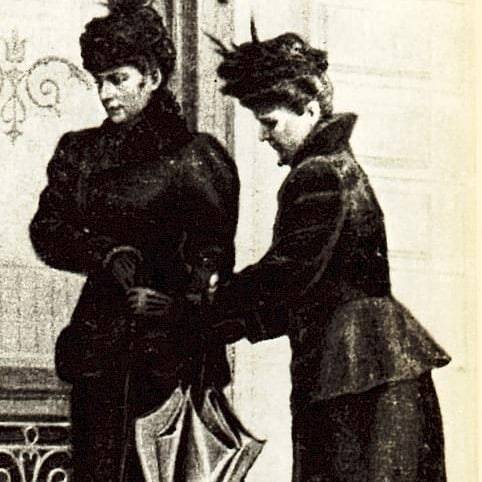
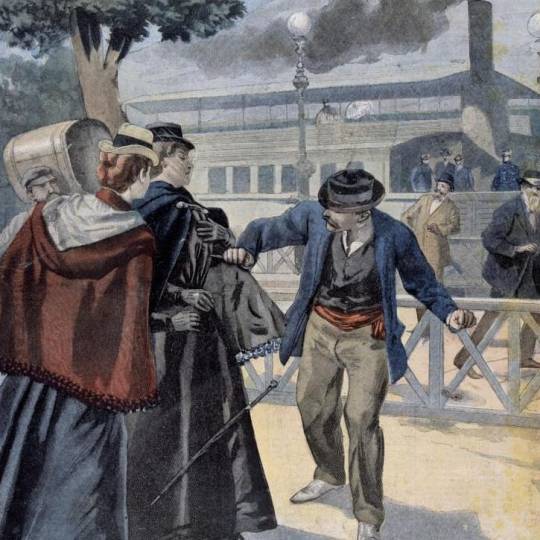
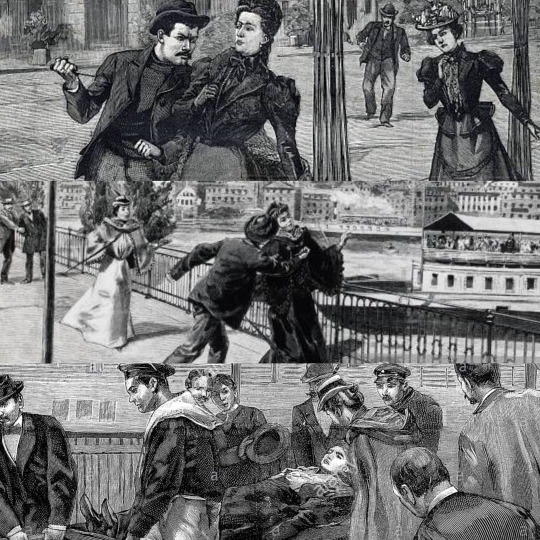
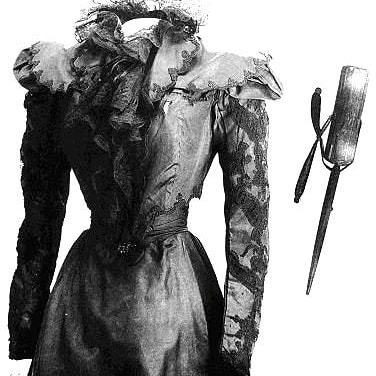
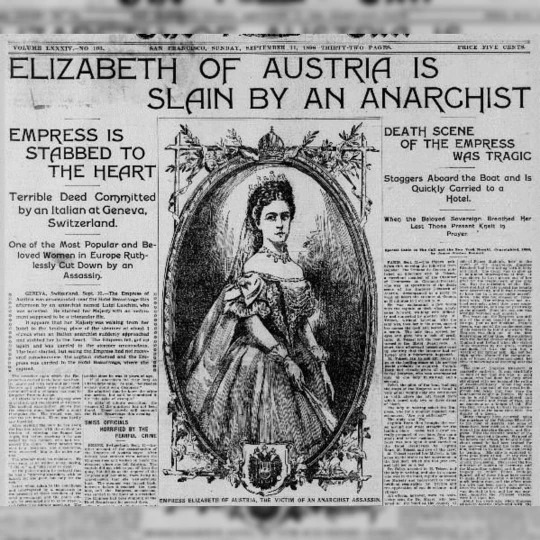
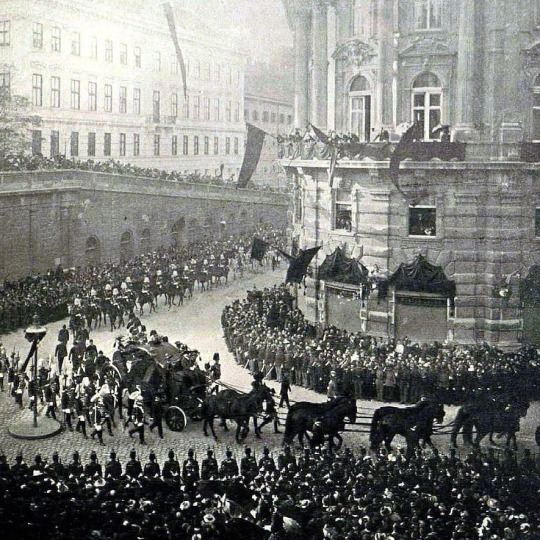
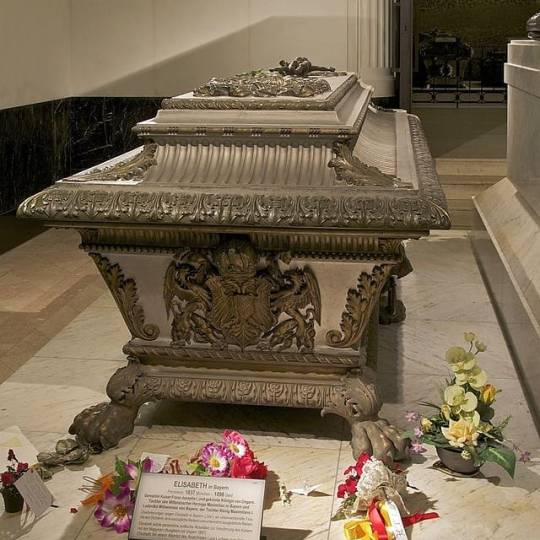
On 10 September 1898, the 60-year-old Empress Elisabeth of Austria was assassinated in Geneva.
In 1898, despite warnings of possible assassination attempts, Elisabeth travelled incognito to Geneva, Switzerland. At 1:35 p.m. on 10 September, Elisabeth and Countess Irma Sztáray de Sztára et Nagymihály, her lady-in-waiting, left their hotel to catch the steamship bound for Montreaux. They were walking along the promenade when the 25-year-old Italian anarchist Luigi Lucheni approached them and as the ship's bell announced the departure, Lucheni seemed to stumble and made a movement with his hand as if he wanted to maintain his balance.
In reality, he had stabbed Elisabeth with a sharpened needle file that was 4 inches (100 mm) long that he had inserted into a wooden handle. After Lucheni struck her, the Empress collapsed but was helped to her feet and continued walking. It seems that Elisabeth did not at first realise what had happened for she assumed that Lucheni was trying to rob her. Shortly after boarding the boat, Elisabeth lost consciousness. The captain ordered the ferry back to Geneva. As the boat was already sailing out of the harbour three men had to carry Elisabeth on to the top deck and laid her on a bench.
It was only when Countess Irma opened Elizabeth's dress and cut her corset laces so she could breathe that a small brown stain above the empress's left breast was noticed. Elisabeth revived somewhat and when asked if she was in pain, she replied, "No". She then asked, "What has happened?" and lost consciousness again. Elisabeth was then carried to the Hotel Beau-Rivage. Fanny Mayer, the wife of the hotel director, a visiting nurse, and the countess undressed Elisabeth and removed her shoes, but when they then removed her from the stretcher to the bed she was clearly dead. Two doctors, Dr. Golay and Dr. Mayer arrived, along with a priest, who was too late to grant her absolution. She was pronounced dead at 2:10 p.m.
The autopsy was performed the next day by Dr. Golay, who discovered that the weapon, had penetrated 3.33 inches (85 mm) into Elisabeth's thorax, fractured the fourth rib, pierced the lung and pericardium, and penetrated the heart from the top before coming out the base of the left ventricle. Because of the sharpness and thinness of the file the wound was very narrow and due, to pressure from Elisabeth's extremely tight corseting, the haemorrhage of blood into the pericardial sac around the heart was slowed to mere drops. Had the weapon not been removed, she would have lived a while longer, as it would have acted like a plug to stop the bleeding.
When Franz Joseph received the telegram informing him of Elisabeth's death, he feared that she had committed suicide and was only later relived when a later message arrived, detailing the assassination. Elisabeth's body was placed in a triple coffin and was carried back to Vienna aboard a funeral train. The entire Austro-Hungarian Empire went into mourning and 82 sovereigns and high-ranking nobles followed her funeral cortege on the morning of 17 September. Despite her wish to be buried in Corfu, Elisabeth was laid to rest in the Capuchin Church, the traditional burial site for the Habsburgs.
Lucheni was caught shortly after the attack and was brought before the Geneva Court. He originally planned to kill the Duke of Orléans, but the Pretender to France's throne had left Geneva earlier than expected and failing to find him, the assassin selected Elisabeth when he discovered that the woman travelling under the pseudonym of "Countess of Hohenembs" was the Empress Elisabeth of Austria. "It did not matter to me who the sovereign was whom I should kill...It was not a woman I struck, but an Empress; it was a crown that I had in view." Lucheni was incarcerated for life, and ten years later, he hanged himself with his belt in his cell.
Franz Joseph remarked to Prince Liechtenstein, "That a man could be found to attack such a woman, whose whole life was spent in doing good and who never injured any person, is to me incomprehensible". Elisabeth's friend, the poet Carmen Sylva, pointed out that this death was terrible "only for the world", but that for Elisabeth it was "beautiful and calm and great in the sight of beloved great nature, painless and peaceful." Her daughter, Archduchess Marie Valerie, expressed similar thoughts, "Now it has happened as she always wished it to happen, quickly, painlessly, without medical treatment, without long, fearful days of worry for her dear ones.
31 notes
·
View notes
Note
Actually there are two more projects about Elisabeth. The Accidental Empress however never announced anything more than going into development and reading the description and reviews of the book, it is better for it.
The Austrian movie Corsage is already filming and is also about an older Elisabeth.
https://kurier.at/kultur/drehstart-zu-corsage-mit-vicky-krieps-als-kaiserin-elisabeth/401200228
Sigh, yeah, so I’ve heard. Lots of Sisi content, which I’m not going to complain about but that family is So big, with dozens of interesting members, surely they could make some shows and/or movies about them.
That movie looks intriguing as well! It will have Ludgiw II! Bless, I do like their relationship. Also funny that Festetics Mária and Sztáray Irma are the ladies-in-waiting who always find the big screen and never Ferenczy Ida, who was arguably the most important person in Elisabeth’s life. It kind of works, really. Ida always stayed in the background and took care of everything. Even now, I suppose.
2 notes
·
View notes
Text
Ho appena cominciato!
AA.VV., Elisabeth von Österreich - Einsamkeit, Macht und Freiheit, Museo della città di Vienna
AA.VV., L'imperatrice Elisabetta dalla storia al mito (catalogo della mostra a Castel Sanzeno, Trento)
Alessandro Minutillo, Trieste durante l’ultimo periodo di dominazione austriaca- Note, impressioni e rettifiche
Alfons Schweiggert, Märchen der Kaiserin Elisabeth
Aurelia Cimino Folliero De Luna, Massimiliano e Miramare- La prima guida del castello
Beatrix Meyer, Kaiserin Elisabeth ganz privat- Briefe an ihre intimste Vertraute Ida Ferenczy
Brigitte Hamman, Elisabeth
Carlo Capra e Marco Meriggi, Gli Asburgo- Felix Austria (dossier)
Costantin Christomanos, Fogli di diario
Elisabetta D’Austria Diario poetico
Francois Fejto, Requiem per un impero defunto- La dissoluzione del mondo austro-ungarico
Giorgia Marras, Sissi- Imperatrice, ribelle, donna (graphic novel)
Irma Sztáray, Elisabeth, gli ultimi anni. L'imperatrice raccontata dalla sua Dama d'onore
Kaiserin Elisabeth Das poetische Tagebuch
Maria Matray & Answald Krüger, L’attentato. La morte dell'imperatrice Elisabetta e il delitto dell'anarchico Lucheni
Marie Valerie von Österreich, Das Tagebuch der Lieblingstochter von Kaiserin Elisabeth
Martin Mutschlechner, Schloss Schönbrunn- Die geheime Geschichte von Österreichs Kulturdenkmälern
Matteo Tuveri, Specchi ad angoli obliqui- Diario poetico di Elisabeta d´Austria, riflessioni storiche, letterarie ed estetiche
Matteo Tuveri, Tabularium- Considerazioni su Elisabetta d’Austria
Nicole Avril, Sissi - Vita e leggenda di un’imperatrice
Nora Fugger, Im Glanz der Kaiserzeit
Nora Rath-Hodann e Anemone Kloos, Sisi- Erzählt für Kinder
Valerio Vitantoni, I sentieri di Sissi- Verità e leggende sugli itinerari altoatesini dell’imperatrice

7 notes
·
View notes
Photo
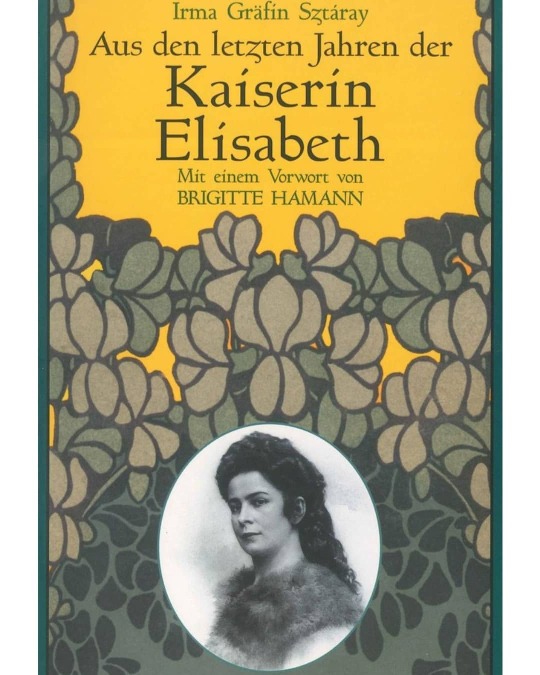
Una parte del diario de Irma Sztáray la podrás leer en la página de Facebook de Sisi el mito (en Alicante Capital) https://www.instagram.com/p/CHnEsh2n6oS/?igshid=ymsoofqmj6xt
0 notes
Text
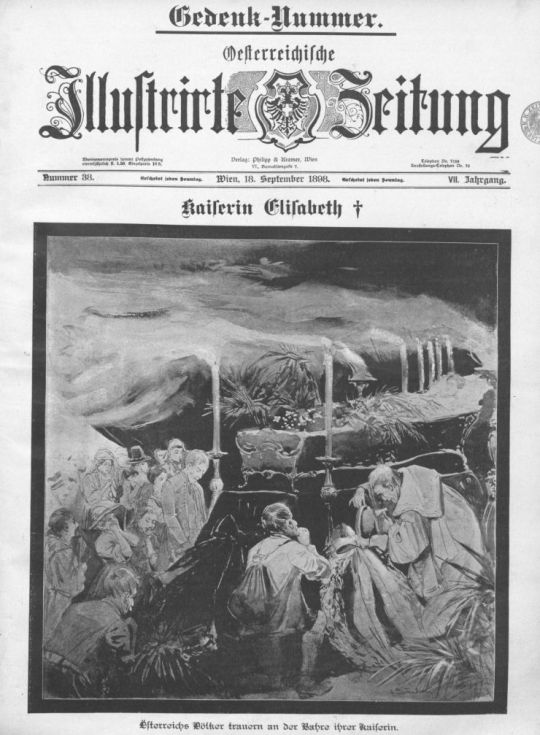
As a young man I was forced to watch the most boring movies about a young empress called Sissi, usually the movies would be on around Christmas time.
Not only were they boring, they were also extremely long and it was a trilogy.They were made between 1955 and 1957.
Sissi, The Young Empress Sissi, Die junge Kaiserin Year: 1956 – Austria Romy Schneider, Karlheinz Bohm Director: Ernst Marischka Poster, France. It is forbidden to reproduce the photograph out of context of the promotion of the film. It must be credited to the Film Company and/or the photographer assigned by or authorized by/allowed on the set by the Film Company. Restricted to Editorial Use. Photo12 does not grant publicity rights of the persons represented.
Siss, The fateful Years of an Empress Sissi, Schicksalsjahre einer Kaiserin Year: 1957 – Austria Director: Ernst Marischka Poster, French. It is forbidden to reproduce the photograph out of context of the promotion of the film. It must be credited to the Film Company and/or the photographer assigned by or authorized by/allowed on the set by the Film Company. Restricted to Editorial Use. Photo12 does not grant publicity rights of the persons represented.
The movies were all idyllic and dripping with sweetness. However the real life of the Empress Elisabeth of Austria,was far from sweet and idyllic.
Elisabeth was born on December 24, 1837, from an early age she was called ‘Sisi’ (in the movies they added an extra s to the name)by her family. Elisabeth was never meant to be Empress. That honor was supposed to go to her sister Helene, who had been trained since birth to be an Empress. The marriage was meant to make up for the marital misalliance of her mother, Ludovica, the daughter of Ludwig I of Bavaria. While her sisters had made grand marriages, Elisabeth to the Prussian Emperor and Sophie to the Crown Prince of Austria, Ludovica had married her first cousin, Duke Max, who wasn’t even a Royal Highness until he was elevated to that title.
When she was 15, Elisabeth, her mother, and her sister Helene went to Bad Ischl to stay with their cousin, the Emperor Franz Joseph, so that he could have a look at Helene. Instead, the young emperor fell in love with Elisabeth instead. Although not as beautiful as her sister, Elisabeth had almond shaped brown eyes, and auburn hair which fell to her knees when unbound.
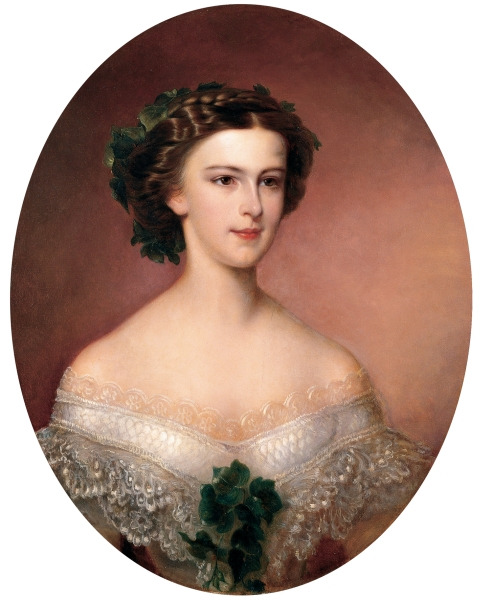
She was shy and awkward around the Emperor but he was entranced. At a ball, he not only gave her a dance bouquet but all the flowers that were meant for all the other ladies. The next day, her mother told her that the Emperor wanted to marry her. Despite her own misgivings about her fitness for the role she was about to undertake, Elisabeth couldn’t dare refuse the honor. And she was fond of Franz Joseph.
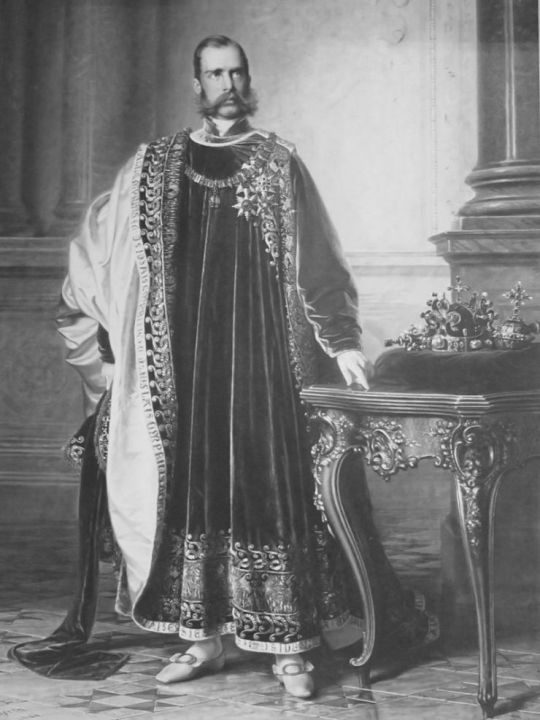
As a Bavarian princess who enjoyed a happy and unstrained childhood, the extremely strict court life in Vienna was a burden Elisabeth never got used to. She started to travel and wrote melancholic poems, and after the tragic death of her only son Rudolf she disappeared nearly completely from the Austrian court.
When Elisabeth was sixty years old, she followed an invitation from the Rothschild family to Geneva. Together with her lady-in-waiting, the Hungarian Countess Irma Sztáray, she walked the short distance between the hotel and the pier without her entourage, despite warnings of possible assassination attempts.
Luigi Lucheni, a poor man full of rage for the upper nobility, ran towards them as they walked by on the promenade and stabbed Elisabeth directly into her heart with a self-made weapon composed of a small sharp file. But neither the empress nor her lady-in-waiting realised what really happened. Thinking of a robbery attempt, they went on boarding the ship. A few minutes later, Elisabeth lost consciousness and died on September 10 1898
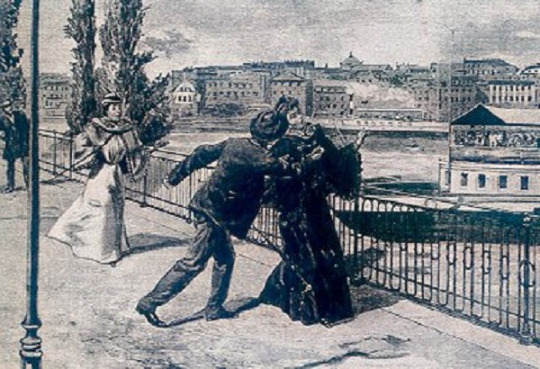
As Geneva shuttered itself in mourning, Elisabeth’s body was placed in a triple coffin: two inner ones of lead, the third exterior one in bronze, reposing on lion claws. On Tuesday, before the coffins were sealed, Franz Joseph’s official representatives arrived to identify the body. The coffin was fitted with two glass panels, covered with doors, which could be slid back to allow her face to be seen.
On Wednesday morning, Elisabeth’s body was carried back to Vienna aboard a funeral train. The inscription on her coffin read, “Elisabeth, Empress of Austria”. The Hungarians were outraged and the words, “and Queen of Hungary” were hastily added.The entire Austro-Hungarian Empire was in deep mourning; 82 sovereigns and high-ranking nobles followed her funeral cortege on the morning of 17 September to the tomb in the Capuchin Church.
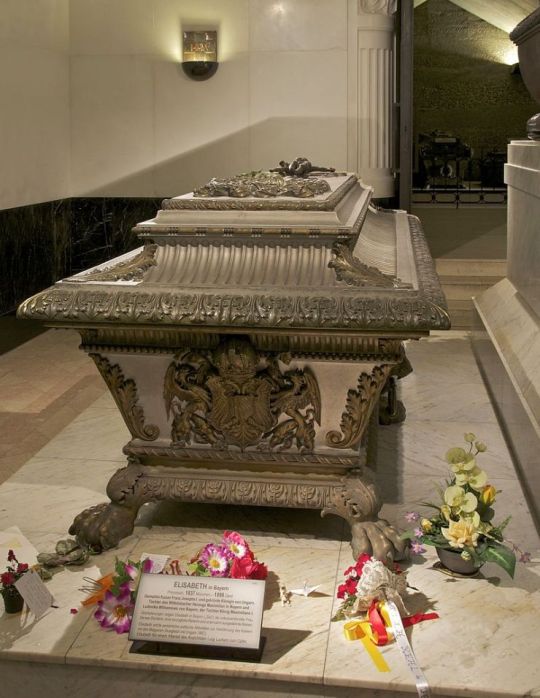
The last movie called “Sissi-the Fateful years”did not address the assassination of the empress.
The actress Romy Schneider who played her also had a tragic end, she committed suicide on May 29 1982.
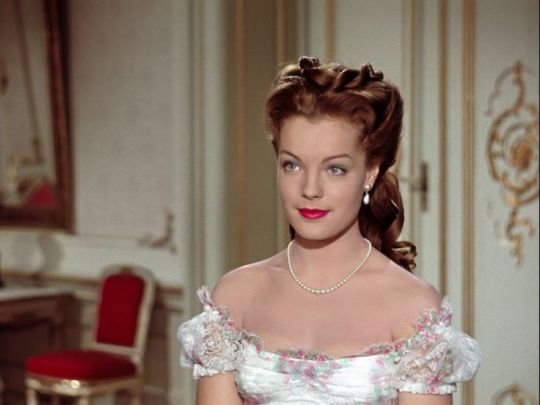
Sissi- The death of an Empress As a young man I was forced to watch the most boring movies about a young empress called Sissi, usually the movies would be on around Christmas time.
0 notes
Text
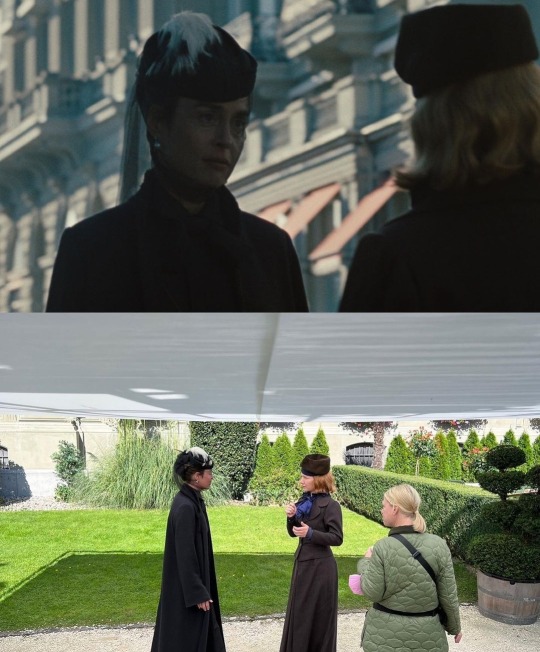
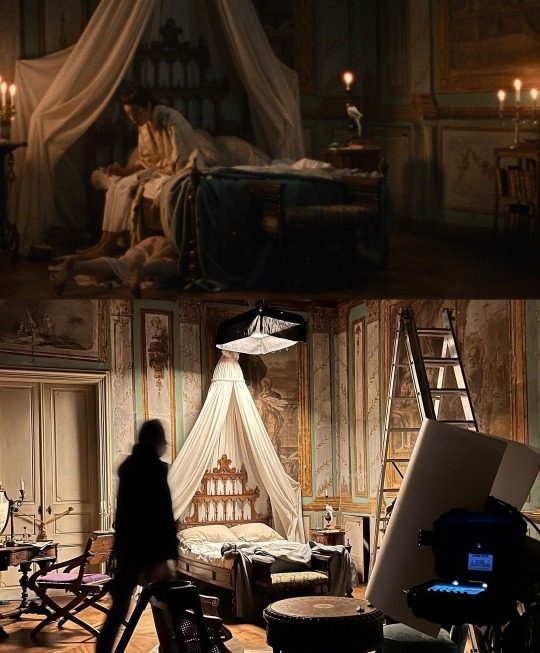
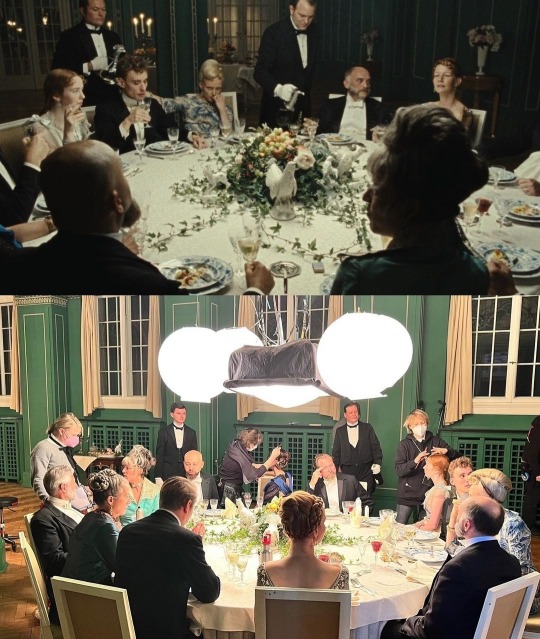

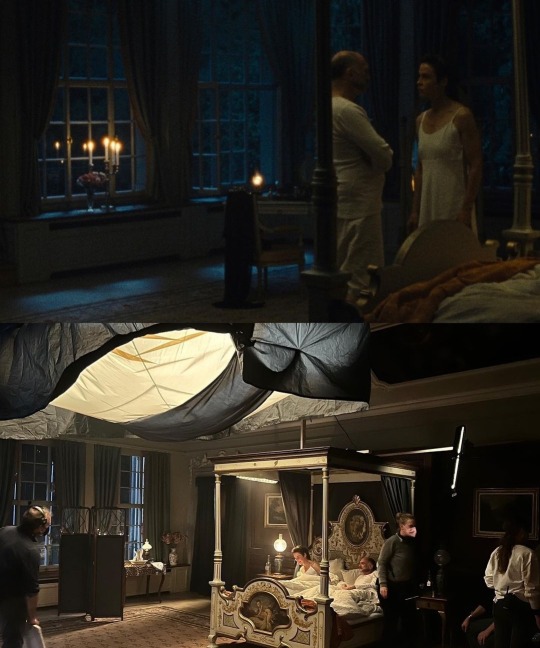
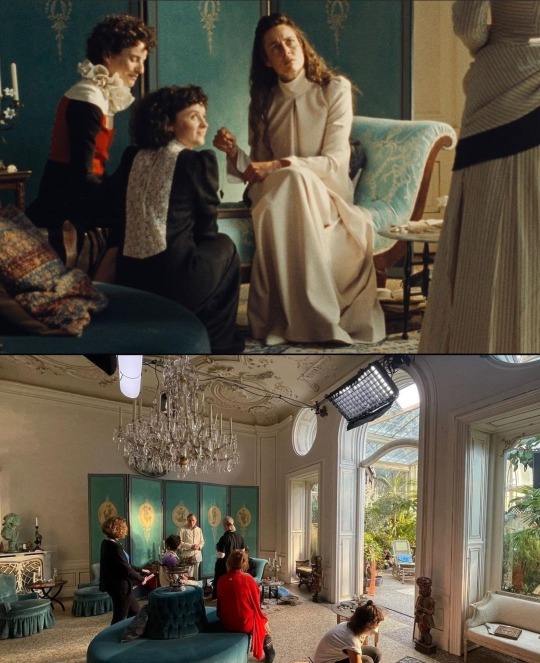
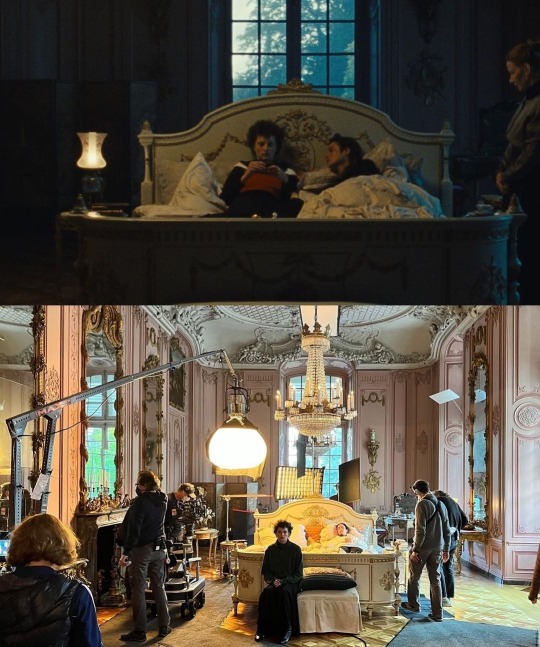
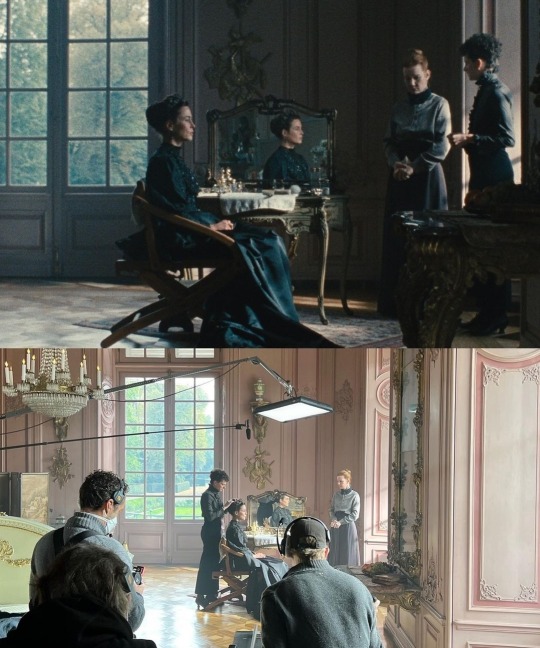
Director of Photography Thomas W. Kiennast shared some movie vs. behind the scenes impressions from Sisi & Ich (2023).
#Sisi und Ich#Sisi and I#costume drama#historical drama#period drama#Thomas W. Kiennast#Susanne Wolff#Sandra Hüller#Markus Schleinzer#elisabeth of austria hungary#elisabeth of austria#Elisabeth in Bavaria#irma sztáray#emperor franz joseph#franz joseph of Austria#german movie#behind the scenes
38 notes
·
View notes
Note
What books about Sisi do you recommend? 😄 Which ones are the best in your opinion?
Hello! I'm sorry for answering this so awfully late. I already recommended some of these books always before, but I tried to give some new recomendations this time!
BIOGRAPHIES:
Elizabeth, empress of Austria by Egon Conte Corti. The first biography of the empress based on primary sources; this work is to this day a point of reference for any historian who wants to write about Sisi. The book, first published in 1934, is however outdated and slightly biased (the children of archduchess Marie Valerie were the ones who opened up the family archives for Corti after all). Translations available in English, Spanish, French, Italian, Hungarian, Slovak, Polish and Dutch.
The Reluctant Empress, by Brigitte Hamann. The most well sourced biography since Corti's. Hamann's book departed from the fairy tale princess image that had been established since the 50s and depicted Elisabeth as a complicated and far from perfect woman. The book, first published in 1982, is however slightly outdated and biased (Hamann just hated Elisabeth lol). There are translations available in English, Spanish, Hungarian, French, Italian, Czech, Polish and Romanian.
Sisis Weg: Vom Mädchen zur Frau by Martina Winkelhofer. I made a full review of this book last month but in short: a refreshing study at Elisabeth's childhood, teenhood and first years as empress that rely on newly available primary sources. I wouldn't recommend this book as your first approach to Elisabeth though, since Winkelhofer assumes the reader is already familiar with the "Sisi myth" and doesn't tend to give much historical context outside the necessary, which may be confusing if you aren't familiar with 19th century European history in general. Translations available in Italian, Polish and Czech.
PUBLISHED DIARIES, LETTERS AND MEMOIRS:
Das Tagebuch der Lieblingstochter von Kaiserin Elisabeth edited by Martha and Horst Schad. Archduchess Marie Valerie's diary from 1878 until 1899. I own a copy of this book and I've been slowly reading it, maybe one day I'll finally finish it. There are translations available in Italian, Hungarian and Czech.
Briefe Kaiser Franz Josephs an Kaiserin Elisabeth, 1859-1898 edited by Georg Nostitz-Rieneck. A compilation of the emperor's letters to his wife. Available (as far as I know) only in German.
Lieber Rudolf: Briefe von Kaiser Franz Joseph und Elisabeth an ihren Sohn edited by Friedrich Weissensteiner. A compilation of letters that the imperial couple wrote to their son Crown Prince Rudolf between 1860 and 1878. Available (as far as I know) only in German.
Das Tagebuch der Gräfin Marie Festetics: Kaiserin Elisabeths intimste Freundin edited by Gudula Walterskirchen and Beatrix Meyer. The diary of Elisabeth's lady-in-waiting Marie Festetics. Available in German and Hungarian.
Kaiserin Elisabeth ganz privat: Briefe an ihre intimste Vertraute Ida Ferency edited by Beatrix Meyer. All the surviving correspondance between Elisabeth and her reader and confident Ida Ferenczy. Available (as far as I know) only in German.
Unsere liebe Sisi: Die Wahrheit über Erzherzogin Sophie und Kaiserin Elisabeth edited by Gabriele Praschl-Bichler. A compilation of letters by archduchess Sophie regarding her daughter-in-law and also the life of the imperial family in general. Also available in Czech.
Aus den letzten Jahren der Kaiserin Elisabeth by Countess Irma Sztáray. The memoirs of Elisabeth's last lady-in-waiting, from the time she entered service in 1894 until the empress' assassination in 1898. Currently in the public domain in German so it can be read for free here; available also in Hungarian, French, Italian and Czech.
OTHERS:
Das Poetische Tagebuch edited by Brigitte Hamann. Elisabeth's edgy poetry. Historians drag her writing style through the mud while simultaneously using her poems as if they were her private diary. Waiting for a translation in English or Spanish to read them, available also in Hungarian and Italian.
Elisabeth: Stages in a life edited by Brigitte Hamann and Elisabeth Hassmann. A nice short book about the different places Elisabeth lived and traveled to, full with pictures. Available in German and English.
My Past by Countess Marie Larisch. The memoirs of Elisabeth's controversial niece. I don't actually recommend them for learning about the empress since they are very unreliable, hence why I din't put this book in the previous block. I do recommend reading them to double check which heavily accepted facts about Elisabeth and her family originated from here, since many historians repeat her claims uncritically, sometimes without even citing her as the source. In the public domain, you can read it for free in German here and in English here. Also available in Hungarian, French, Italian and Czech.
Tagebuchblätter by Constantin Christomanos. The diary of Elisabeth's Greek teacher from 1891 to 1894. Just as with Larisch' memoirs, Christomanos' book is a mix of fiction and reality, so you should take it with a grain of salt. You can read it for free in German here and in French here. Also available in Greek, Hungarian, Italian and Spanish.
I hope that I could help you!
#btw the only ones i've read from the published letters etc. block is valerie's diary and unsere liebe sisi (which i also haven't finished)#but i wanted to bring to as much primary documents published as possible#empress elisabeth of austria#asks#book recs
27 notes
·
View notes
Text
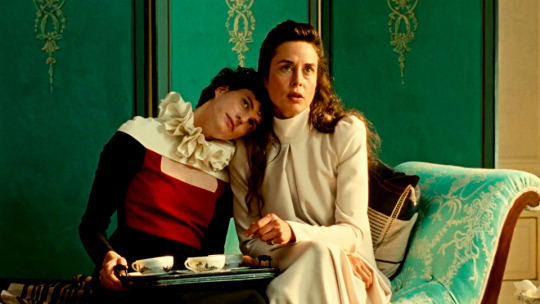
Sophie Hutter et Susanne Wolff dans “Sissi & Moi” biopic de Frauke Finsterwalder - sur les dernières années de l'Impératrice Elisabeth d'Autriche dite “Sissi” (1854-1898) du point de vue de sa dame d'honneur Irma Sztáray (1863-1940) - novembre 2023.
0 notes
Photo
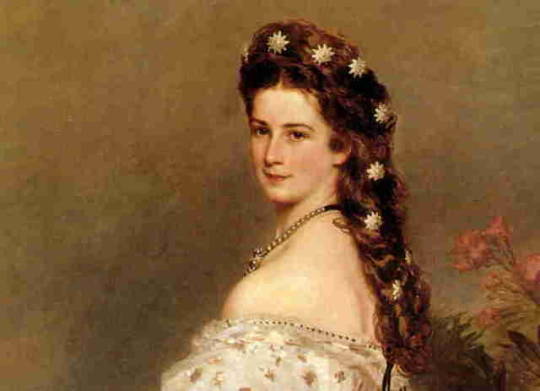
HISTORIA UNIVERSAL - SISSI EMPERATRIZ -
La verdadera historia de Isabel de Baviera en nada tiene que ver con aquella que el cine ha querido mostrar de esta soberana del siglo XIX. Su vida no fue idílica ni un cuento de hadas, si no más bien fue una lucha constante por cambiar el orden establecido de la época convulsa que como emperatriz le tocó vivir.
Isabel de Baviera, más conocida como Sissi, nació en Múnich el 24 de diciembre de 1837 con el título de Alteza Real al ser su padre el duque Maximiliano de Baviera y su madre la princesa Ludovica, hermana de la Archiduquesa Sofía, -madre del emperador Francisco José de Austria-.
La vida de Sissi transcurría placentera en el palacio de Possenhoffen, donde residía la familia. Sin embargo y pese a su condición de princesa, sus padres la mantuvieron alejada de la corte hasta que a los 16 años tuvo que acompañar a su madre y a su hermana mayor, la princesa Elena de Baviera -a la que todos apodaban Nené-, a la residencia de verano que la familia imperial poseía en Bad Ischl. El encuentro entre ambas familias no tenía otro fin más que casar a Nené con Francisco José que acababa de convertirse en emperador de Austria en 1848, tras producirse la Revolución Austríaca ese mismo año.
Sin embargo los deseos de ambas familias quedaron truncados al elegir Francisco José a Sissi como esposa, bajo la desaprobación de la archiduquesa Sofía, que mantenía que Sissi era todavía una niña incapaz de gobernar un imperio. Francisco José y Sissi se casaron el 24 de abril de 1824, cuando Isabel solo tenía 15 años y sus deberes como nueva soberana la pondrían bajo la estrecha mirada de su suegra.
Educada en un ambiente meramente rural, pronto comenzó a tener problemas en la corte vienesa. El estricto protocolo bajo el que se regía la familia imperial supuso para Sissi un esfuerzo ímprobo por cumplir con éste por lo que comenzaron los verdaderos problemas entre Sissi y su suegra.
El matrimonio entre ambos no era lo que habían querido. Si bien Francisco José amaba de verdad a Sissi, esta no le correspondía de igual modo, por lo que Sissi comenzó a buscarle amantes, hecho que se podría decir entristeció al emperador.
Pese a esto el matrimonio comenzó a tener hijos nada más casarse. El primero fue una niña, Sofía, que murió a los dos años, lo que produjo en Sissi una profunda tristeza de la que nunca se recuperaría. Le siguieron Gisela y Rodolfo. Todos los hijos de la pareja fueron educados por la archiduquesa Sofía que consideraba que tenía más experiencia que Sissi a la hora de educar a los niños, ya que para Sofía, Sissi todavía seguía siendo una niña.
La última hija del matrimonio nació en 1868, diez años más tarde que Rodolfo y según se dice, Sissi mostró por su hija pequeña una adoración que no había sentido por sus otros hijos.
Como hemos dicho, Sissi no fue nada convencional. Su vida giraba en torno a un tumulto de actividades que se consideraban extremas en la corte vienesa.
Obsesionada con su físico, la emperatriz sufría lo que hoy conocemos como anorexia. Había hecho instaurar en sus aposentos un gimnasio para practicar con las anillas, paseaba durante largas horas al día hasta acabar exhausta y se obstinó en mantener la misma figura toda vida la vida a pesar de sus cuatro embarazos. Pesaba menos de 50 kilos pese a su altura de 1,72.
Por otro lado era una viajera incansable. En la isla griega de Corfú mandó construir un palacio al que ella consideraba su verdadero hogar.
Hungría fue también su obsesión. Se empeñó en aprender húngaro, que para ella era un idioma mucho más bonito que el alemán. Su incasable amor por este país la convirtió en la precursora de la unión de ambos países convirtiéndose tanto ella como Francisco José en reyes de Hungría en 1867, creándose de este modo el imperio Austro- Húngaro.
Sissi era sin duda una mujer muy culta y avanzada para su tiempo. Toda su fortuna la donó a un banco suizo para que sus familiares pudiesen vivir en el destierro. Tuvo sin duda una plena visión de futuro.
Su muerte, en 1898, consternó al mundo entero, al ser tan rápida e inesperada. Mientras paseaba con su dama de compañía, la condesa Irma Sztáray en Suiza, un anarquista le clavó un pequeño estilete en el corazón. Si bien Sissi no se había dado cuenta del suceso, fue ya en el barco cuando se percató de que la herida era mortal.
Moría así una emperatriz incomprendida para su tiempo, una mujer valiente y decidida y a la vez una mujer acosada por sus propios fantasmas. Está enterrada junto a su hijo Rodolfo y a su marido el emperador Francisco José en la Cripta de los Capuchinos, o Cripta Imperial de Viena, donde nunca quiso ser sepultada.
Autor: Lu Luengo para La Revista Historia
0 notes